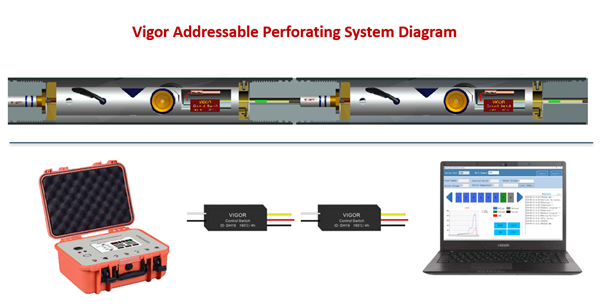Despite your best efforts, accidents can happen and pets can become lost. If they’re wearing a collar and identification tag, chances are good that you’ll get them back. But what if the collar or tags come off?
To protect their pets, many owners turn to microchips. Microchips are tiny transponders, about the size of a grain of rice, that can be implanted under your pet’s skin by most veterinarians and animal shelters; some shelters implant chips in all pets they place. Inclination Sensor

A microchip isn’t the same as a GPS device, and it can’t be used to track your pet’s whereabouts. It’s simply a unique identifier (think of it as your pet’s social security number) that is implanted so it can’t be lost.
Microchips are an essential backup option for pet identification but should never be the main one. Reading a microchip takes a special scanner, one that an animal control officer or shelter will have, but your neighbor down the street will not. And if your dog or cat wanders off, it’s likely to be a private citizen who encounters them first. That’s why, in the event of accidental separation, identification tags are your pet’s first ticket home.
That said, microchips provide an extra level of protection in case your pet loses their collar or tags. Studies show that pets with chips are much more likely to be returned to their owners than those who lack one.
Sign up to receive our exclusive e-book full of important information about caring for your pet, including training techniques and answers to frequently asked questions.
How and where are microchips placed?
Can a microchip get lost inside my pet?
How long do microchips last?
Where can I get my pet microchipped?
How do I register my pet?
Are there different types of chips?
Can a microchip replace my pet’s collar and tags?
What if I move or change my phone number or email address?
What do I do if I adopt a pet who’s already been microchipped?
Microchips are implanted just under the skin, usually right between the shoulder blades. This is done with a large-bore needle and doesn’t require anesthesia. Each microchip contains an identification number and the phone number of the registry for the particular brand of chip. A handheld scanner reads the radio frequency of the chip and displays this information. An animal shelter or vet clinic that finds your pet can contact the registry to get your name and phone number (or do an online search of all major microchip registries).
Your pet’s subcutaneous tissue usually bonds to the chip within 24 hours, preventing it from moving. There’s a small chance that the chip could migrate to another part of the body, but it can’t actually get lost.
Microchips are designed to work for 25 years.
Many veterinarians and some animal shelters implant microchips for a small fee. But—and this is very important—just getting a microchip isn’t enough. You also need to register your pet’s microchip to link the chip number to your name and contact information. (While some shelters, rescues and veterinary clinics now register the chips they implant, many don’t, so you need to make sure your chip is registered with your current contact information.)
Most microchip registries allow you to register a chip online. Some companies charge a one-time registration fee, others charge an annual fee and some are free but may charge for extra optional services. However, there are completely free options for registering your pet’s microchip, no matter the brand, such as the American Animal Hospital Association’s Free Chip Registry.
Yes, competing microchip companies use different frequencies to send signals to scanners, and that used to be a problem. Now there are universal scanners that can detect the different frequencies. Many microchip companies produce universal scanners and provide them to animal shelters and animal control agencies at no or very low cost. If your local animal welfare organizations don’t have scanners, encourage them to contact some of the major manufacturers to ask about getting one, or consider donating a scanner to your local shelter or rescue.
Yes, and that also used to be problematic. Different chip companies maintained separate databases. Now, some chip companies will register pets with any brand of chip. Also, the AAHA’s online microchip lookup tool searches the databases of all major microchip registries, making it easier for anyone who finds your pet to identify the right registry and contact you.
No. Despite advances in universal scanners and registry procedures, microchips aren’t foolproof and you shouldn’t rely on them exclusively to protect your pet. Universal scanners can detect a competing company’s chip, but they may not be able to read the data. And if shelter or vet clinic personnel don’t use the scanner properly, they may fail to detect a chip.
You should update your microchip registry information online or ask the company to update your information. If your pet becomes lost, you’ll want them back as quickly as possible, so you want to make it easy for any shelter, vet clinic or animal services agency that finds your pet to contact you.
Use the AAHA online microchip lookup tool to see if your pet’s microchip has been registered and to update the information. If the chip hasn’t been registered, you can simply register it with your name and contact information. If you don’t know your pet’s microchip number, ask your vet, animal shelter or local rescue group to scan your pet and provide you with the number.
Found an animal? Get tips for identifying the owner of a microchipped pet.
We never know where disasters will strike or when animals may be in need of rescue, but we know we must be ready. Donate today to support our lifesaving work.
By providing your mobile number, you agree to receive autodialed, recurring text messages from the HSUS with updates and ways you can help animals. Message and data rates may apply. Text STOP to 77879 to opt out, HELP for info. Privacy policy. Terms and conditions.
© 2023 The Humane Society of the United States Privacy policy and terms.

Drilling Bypass Solution The Humane Society of the United States is registered as a 501(c)(3) nonprofit organization. Contributions to the HSUS are tax-deductible to the extent permitted by law. The HSUS's tax identification number is 53-0225390.